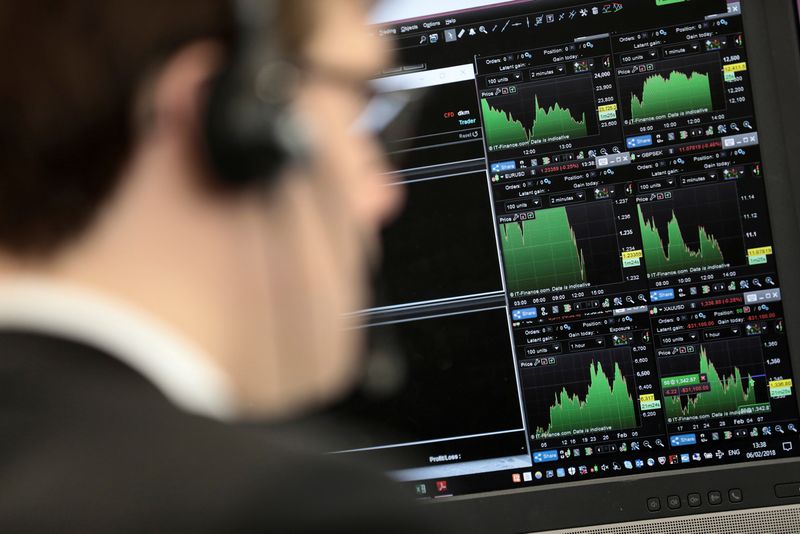
The release of the crucial monthly U.S. consumer price report is the main event Wednesday, as it’s likely to influence the Federal Reserve’s near-term policy path.
April’s consumer price index is due out during the U.S. trading morning, and economists expect that it rose 0.4% in April on a month-over-month basis, or 3.4% from 12 months earlier.
The core reading, which excludes volatile food and energy prices, is expected to show underlying inflation rising 3.6% on a year-over-year basis, which would be the smallest increase in over three years, a monthly rise of 0.3%.
Investors have had to dial back their expectations of U.S. rate cuts this year due to sticky inflation and are now pricing in 43 basis points of easing this year, compared with 150 bps of easing anticipated at the start of 2024.
Federal Reserve Chair Jerome Powell emphasised the point that inflation was proving difficult to tame in a speech at the Foreign Bankers’ Association’s Annual General Meeting in Amsterdam on Tuesday.
“Inflation in Q1 was notable for the lack of further progress,” Powell said. “Confidence in inflation moving back down is lower than it was. My confidence on that is not as high as it was before.”
U.S. producer prices increased more than expected in April, data showed on Tuesday, indicating that inflation remained stubbornly high early in the second quarter.
U.S. stock futures traded little changed Wednesday, amid caution ahead of the release of key inflation data, which could influence the Fed’s future monetary policy.
By 04:30 ET (08:30 GMT), the Dow Jones Futures contract was 10 points, or 0.1%, higher, S&P 500 Futures traded largely unchanged, while Nasdaq 100 futures fell 10 points, or 0.1%.
The main Wall Street indices had a winning session on Tuesday, despite April producer prices rising by more than expected, but the more widely-watched consumer price index is likely to have a more significant impact if it differs from consensus [see above].
Other economic reports due out Wednesday include retail sales figures for April, May’s Empire State manufacturing survey and the housing market index.
In the corporate sector, footwear retailer Boot Barn (NYSE:BOOT) stock dropped more than 5% premarket on disappointing guidance for the full year, while solar tracker manufacturer Nextracker (NASDAQ:NXT) gained 12% on better-than-expected revenue.
The so-called meme stocks, such as GameStop (NYSE:GME) and AMC Entertainment (NYSE:AMC), have continued to rise, with their Frankfurt-listed shares soaring Wednesday, in a continuation of this week’s rally.
Cinema chain AMC gained 32% on Wall Street Tuesday, while video game retailer Gamestop surged 60%.
This followed a series of cryptic posts on social media platform X on Sunday from “Roaring Kitty” Keith Gill, a central figure behind the 2021 meme stock frenzy, following a three-year gap.
The posts didn’t mention any company names, instead included clips from movies including Pirates of the Caribbean, Tombstone, V For Vendetta, and a comic of a man sitting up in a chair.
Legendary investor Bill Gross commented on the sharp gains by companies favored by many retail investors on the social media platform X:
““Gamestonk” is passe. What could be a better buy signal than a cartoon man sitting upright in his chair?”
“Buy? Sell? Not me. Sell 400% annualized volatility,” he wrote.
The buying craze is “frankly stupid,” said Cole Smead, CEO of Smead Capital Management which has around $6 billion of assets under management, in an interview with CNBC on Tuesday. “It is gambling.”
Cisco is scheduled to release its latest quarterly earnings after the close of trading Wednesday, and investors will be looking to see how the digital communications technology conglomerate has integrated Splunk (NASDAQ:SPLK), having closed the acquisition of the software company in March.
Analysts expect a year-over-year decline in both the top and bottom lines in its fiscal third quarter, with the company’s campus networking business continuing to face challenges.
“We forecast the core business to decline at a low- to-mid single-digit rate organically for the year, with the consolidation of Splunk driving the aggregate revenue growth of +3% y/y in FY25,” said analysts at JPMorgan, in a note.
“While F3Q results are typically too early for the company to provide an update about FY25, we believe there remains a potential opportunity that the company opts to provide more than typical guidance given that it will have to be otherwise an essential part of the discussion at the June 4 investor day,” the bank added.
Crude prices rose Wednesday, as industry data showed a drop in U.S. inventories and boosted expectations of tighter global markets.
By 03:30 ET, the U.S. crude futures traded 0.7% higher at $78.54 a barrel, while the Brent contract climbed 0.6% to $82.83 per barrel.
Data from the American Petroleum Institute indicated on Tuesday that U.S. oil inventories shrank 3.1 million barrels in the week to May 10, with the data also showing a decline in gasoline stockpiles.
If confirmed by the official data later Wednesday, this would suggest U.S. fuel demand was picking up with the advent of the travel-heavy summer season – a trend that could help tighten global crude supplies, even as U.S. production remains at record highs.
Expectations of tighter North American markets were also furthered by a swathe of devastating wildfires near Fort McMurray, a major Canadian oil sands city.
This optimism has overshadowed the International Energy Agency trimming its forecast for 2024 oil demand growth earlier Wednesday.
The Paris-based energy watchdog lowered its growth outlook for this year by 140,000 barrels per day to 1.1 million bpd, largely citing weak demand in developed OECD nations.
To read the full article, Click Here
